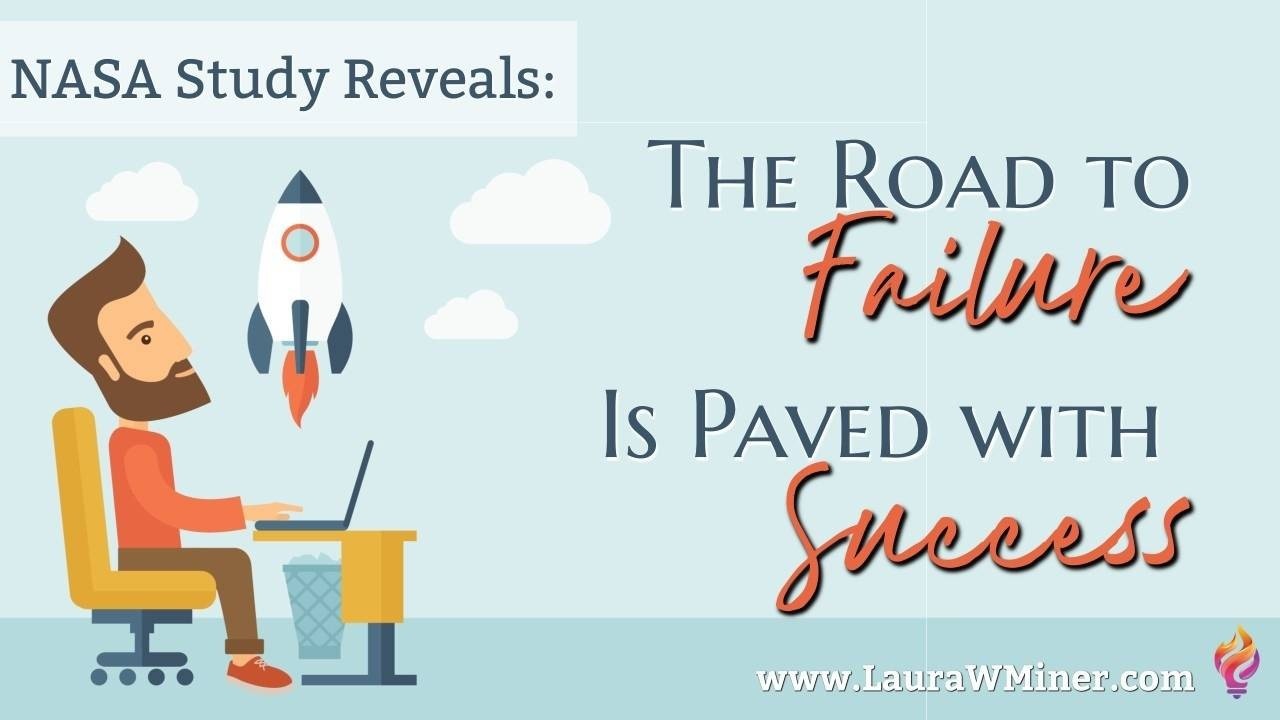
It’s often touted that the road to success is paved with failure… but could that equation be backward?
An interesting workplace study, which was conducted at NASA and published in the Academy of Management Journal, evaluated successes and failures surrounding the space shuttle program.
Essentially, the study compared and measured whether more is learned from success, failure, or a combination of the two... and their findings revealed some interesting perspectives.
It’s widely known that failures, even at the most extreme, catastrophic level, can be a bridge to future success IF one takes the time to truly learn from those mistakes. This includes exploring why things went awry, determining where they started to go off track, and looking at what could’ve been done differently to avoid the failure.
But what the researchers of this study found was that the catalyst behind failure was actually success.
Repeated, high-profile successes led NASA employees to a false sense of safety. They were essentially resting on their laurels and letting past successes impact their decision making. This resulted in “diminished curiosity”, as the researchers put it, toward evaluating potential future problems.
In other words, NASA became so comfortable with their wins, that they weren’t putting the necessary energies toward looking for problems or preparing for things to NOT go their way. They took their eye off the ball.
Success did not breed success in this study; it bred failure.
Yet failure can be a catalyst to success.
The research has shown that there is tremendous value in failure when:
-
Time is spent introspecting on the setback(s),
-
A determination is made as to both when and why things went wrong, and
-
The lessons gleaned are applied so as to avoid making the same mistakes in the future.
But what is being missed by not applying this same introspection methodology to success? Especially when one considers that, generally, successes happen more frequently than failures.
Could we change the equation regarding successes leading to failures if we apply the same problem-solving curiosity to deconstructing our wins as we do our stumbles?
What if we adapted the research on failure to fit our successes, and instead:
-
Spent time introspecting on our success(es),
-
Determined both when and why things went right, and
-
Applied the lessons gleaned to our future actions so we could duplicate our success.
Psychologists (as well as all scientific disciplines) use the scientific method to establish and test their thoughts and ideas. They start by making an observation, then asking a question, then forming a hypothesis, followed by a prediction about the outcome. Finally, they conduct an experiment to test the prediction.
Leveraging the scientific method to drive our own personal success and achievement is a fantastic way to make use of this proven process.
Be your own experiment, test how you can measure and duplicate your successes, then apply the lessons learned to your future endeavors.
Your future self will thank you. 🙂
If you found this article helpful and would like to fuel your success with more science-backed insights, then click here to get access to a free, 10-part video course that will skyrocket your achievements as you develop an achiever’s mindset.
Get the Practionable Leadership Newsletter
Practical, actionable insights to help you level up your leadership and life!



